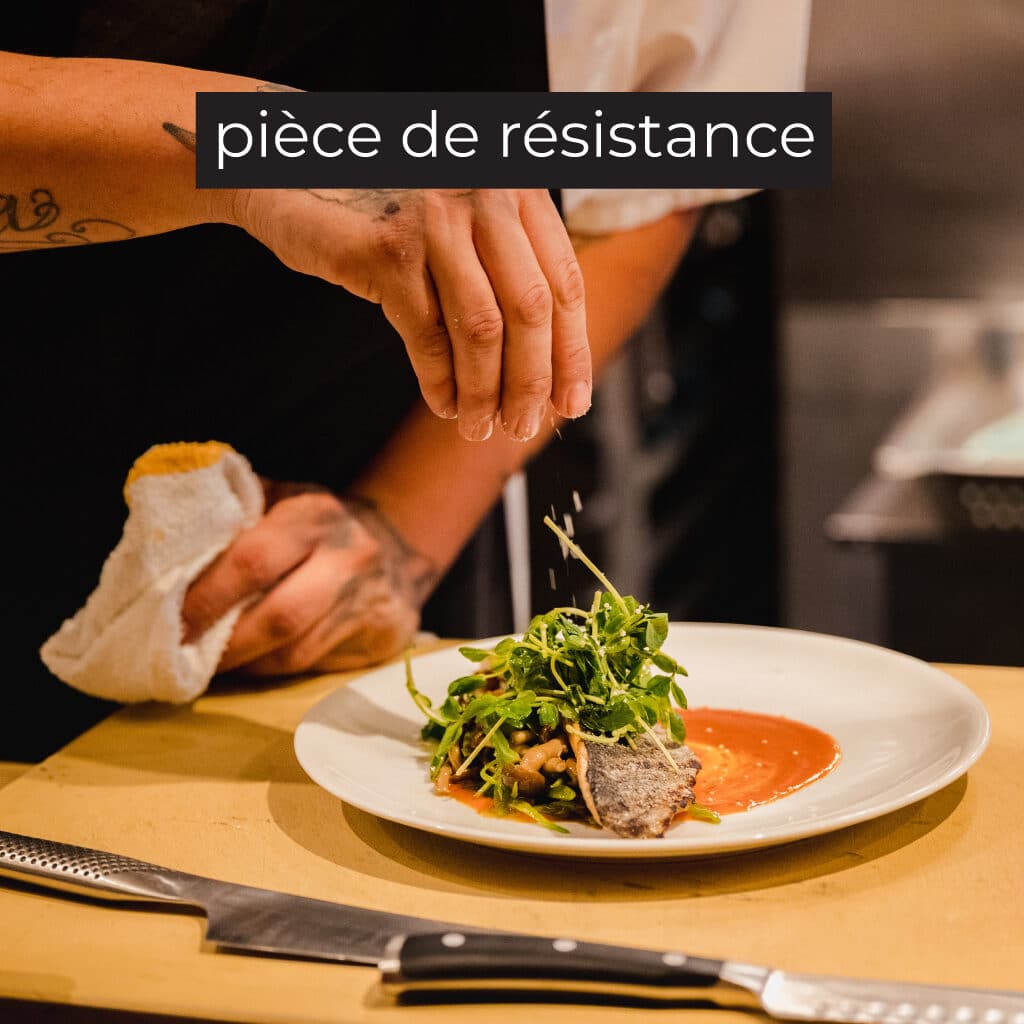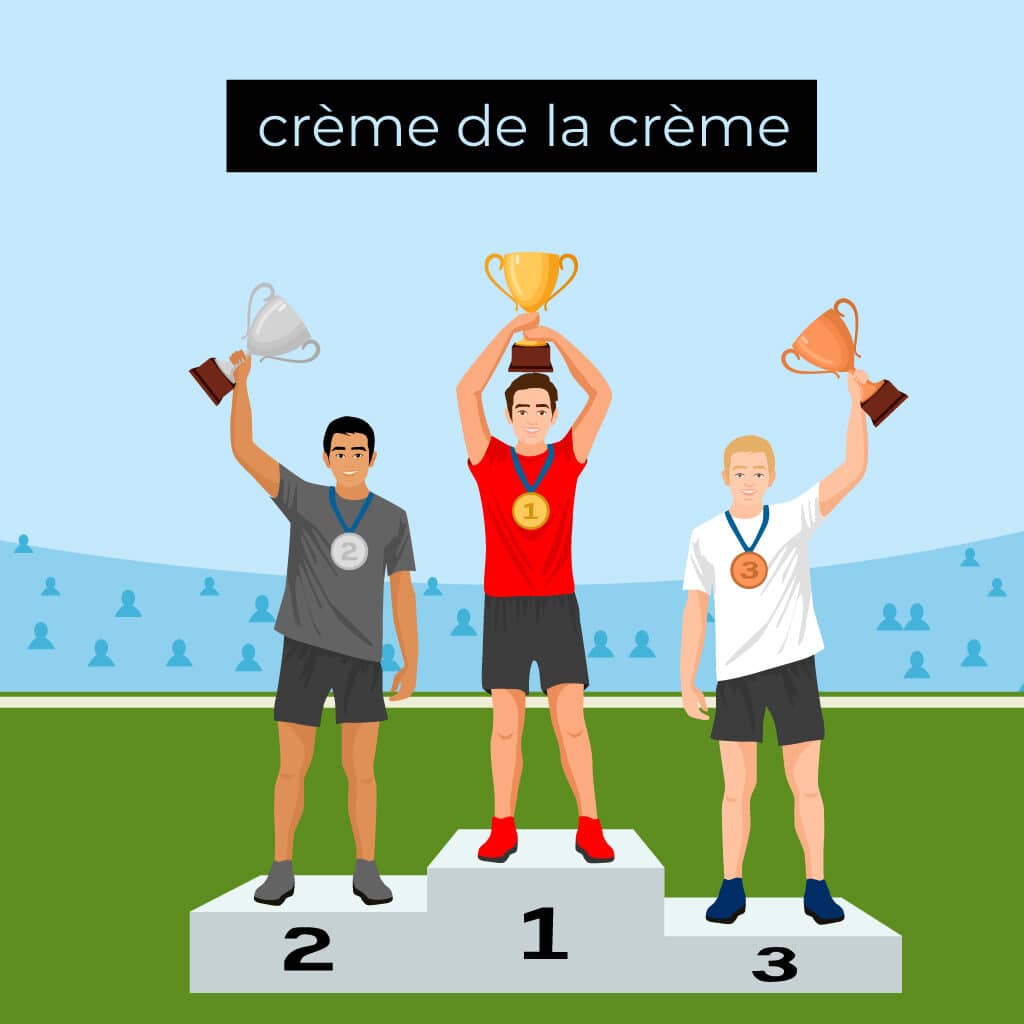
GRE Newsletter Subscribe
Enter your email address below and subscribe to our newsletter

Enter your email address below and subscribe to our newsletter

Hello folks, welcome to the 15th GRE Word List Blog. This series of blogs aims to provide GRE aspirants Verbal resources to bolster their GRE Preparation online. In this blog, we will explore a few English words adapted from French i.e. Loanwords, in continuation to our last blog, where we looked at Scandinavian Loanwords.
If you haven’t read that yet, check it out!
You can find the other GRE Online Preparation Word List Blogs here.
The Scandinavian loanwords blog from last week, combined with the excitement surrounding the release of the new James Bond movie made me think about other languages that English heavily borrows from. While we’ve already done Greek and Latin (and will do more of those in the future), one language we haven’t really explored is French. (Therefore) Par suite…
‘Pardon My French’ or ‘Excuse My French’ is an expression that’s an attempt to disguise profanity as words from the French language. However, we won’t be having any of that here. The French words in this blog are French phrases that have entered common English parlance and give one’s vocabulary an air of distinction.
This week’s words are pièce de résistance, coup de grâce, crème de la crème, force majeure, and carte blanche.
Part of Speech – noun
Definition – (especially with reference to creative work) the most important or remarkable feature.
Word Origins – French, literally ‘piece (i.e. means) of resistance’ or “the piece with staying power.”
Synonyms – magnum opus, tour de force, forte.
Usage – Gordon Ramsay’s Beef Wellington is his pièce de résistance.

The term ‘pièce de résistance’ originated in the 1800s in the setting of French restaurants.
Apocryphally, it referred to the dish people came to eat at a restaurant. Ergo, ‘the dish with staying power.’ When the term began to be used in art/literature contexts, it came to mean the work which made people stay, or the work that ensured the artist/author stayed in the minds of people.
Part of Speech – noun
Definition – an action or event that serves as the culmination of a bad or deteriorating situation.
Word Origins – French, literally ‘stroke of grace’.
Synonyms – death blow, kayo, dispatch, the final nail in the coffin.
Usage – Getting a GRE Score of 280 was the coup de grâce for his Harvard ambitions.
A coup is the overthrowing of a government and removal of its powers by a political faction, the military, or a dictator.
When people talk about a coup, they’re referring to a coup d’état, meaning ‘a blow of state.’ In 2021 alone, there’ve been 7 coup attempts, of which 3 have been successful.
The first of the year, the Myanmar coup d’état is arguably the most notable. President Win Myint and State Counsellor Aung San Suu Kyi were detained, among others, and the military seized control, declaring Myanmar to be a stratocracy.
Some footage of the coup went viral, as a fitness instructor inadvertently recorded the convoy of military vehicles heading to depose the heads of state. Check it out here.
Part of Speech – noun
Definition – the best person or thing of a particular kind.
Word Origins – French, literally ‘cream of the cream’.
Synonyms – elite, upper crust, best, choice.
Usage – With a GRE score of 340, these test-takers are the crème de la crème.

The origin of the phrase ‘crème de la crème’ is from medieval France. It became popular in England in the 18th century.
Cream, being the best-tasting part of milk, was considered a luxury item. As a result, only rich households consumed cream. To the aspiring bourgeoisie and the lower class, cream was aspirational. So, it stands to reason, that the best thing they could attain was cream of the cream, so to speak.
A variant of this phrase was in use much before this, since the 16th century – cream of the crop – and had the same connotations.
Wu-Tang Clan is an American hip-hop group formed in 1992. It consists of members with distinctive names like Ghostface Killah, Method Man, Inspectah Deck, and more.
To Wu-Tang-ify your own name, check out this link for a fun exercise.
In ’94, they released C.R.E.A.M. – Cash Rules Everything Around Me, a hard dose of reality, that went gold as late as 2009. Despite the initial lack of hype surrounding it, the song has been acclaimed as one of the greatest of all time.
Check it out here. (Explicit Lyrics Warning)
Part of Speech – noun
Definition –
1. unforeseeable circumstances that prevent someone from fulfilling a contract.
2. irresistible compulsion or superior strength.
Word Origins – French, literally ‘superior strength’.
Synonyms – an act of god, predetermination.
Usage – His home insurance covered most unfortunate events, except for force majeure.
Force majeure is a clause present in most contracts, exempting all parties of liability in case of unforeseen events. Although in common usage, we include ‘acts of god’ under this clause, I’ve learnt from a quick wiki search, that it is actually a different clause entirely.
Typically, the force majeure clause only suspends the liability of parties for the duration of the unforeseen event, and doesn’t terminate liability forever.
An interesting contrast to the force majeure clause is the ‘Hell or High Water’ clause.
The phrase ‘hell or high water’ is supposed to have been derived from ‘between the devil and the deep blue sea,’ meaning ‘caught between two difficult situations.’ Another variant of this phrase is ‘between a rock and a hard place.’
It means that the party to the agreement is supposed to fulfil the terms of their contract no matter what the difficulty.
Part of Speech – noun
Definition – complete freedom to act as one wishes.
Word Origins – French, literally ‘blank paper’ (i.e. a blank sheet on which to write whatever one wishes, particularly one’s own terms for an agreement).
Synonyms – autonomy, unrestraint.
Usage – James Bond often has carte blanche to accomplish his mission.
Carte Blanche, in its original form, was a blank paper, handed to a person, implying that they had no rules/guidelines to follow, and could operate with full authority. When the paper in question became to be associated with monetary matters, the concept of the ‘blank cheque’ was established. Being handed a ‘blank cheque’ essentially meant that one could name their price for whatever was being bought.
Legendary author Arthur Conan Doyle notably used ‘carte blanche’ in several of his stories, of which ‘A Scandal in Bohemia’ and ‘The Adventure of the Beryl Coronet’ are the most notable. In both stories, Sherlock Holmes had carte blanche, conferred by wealthy clients, desperate to obtain objects of sensitive natures.
Élémentaire, mon cher Watson.
Liked our GRE Preparation Online Blog? What other French phrases could we have included?
Let us know in the comments.
Check us out on our Social Media Handles!